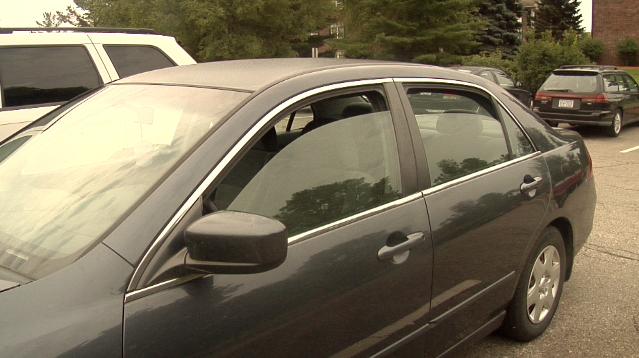Deadly Dangers of Hot Cars
- Published: 6/23/2015
- Comments
MERIDIAN TOWNSHIP - With summer in full swing, it's important to remember the dangers that rising temperatures can bring to our loved ones.
While leaving a child or an elderly person in a hot car for only a few minutes might seem innocent, the negative effects of doing so are much more serious. Even with the windows cracked open, children tend to absorb heat much quicker and the elderly don't regulate heat as well as an adult.
"When it gets to temperatures inside of the car, in upwards of 80 degrees plus outside, it's very easy to get temperatures inside the car 110,120,130 degrees. When you start getting that heat transfer into the body, once the body temperature reaches about 103, upper 103-104 range, that's when we can start to see seizures," said Tavis Millerov, Fire Inspector of Meridian Township Fire Department.
Not only does leaving a child in a hot car come with major risks, the consequences of doing so can sometimes call for legal action.
Lieutenant Greg Frenger of the Meridian Township Police states that such actions are considered child abuse and neglect and can lead to criminal charges, as well as involvement from CPS.
"The charges can vary from child abuse level 4, which is a two year felony, up to child abuse in the first degree," said Lt. Frenger.
But children and elderly persons aren't the only ones we should worry about in extreme heat. You're furry friend could suffer the same deadly consequence.
"We've seen many cases where an animal was left in the car and sometimes they'll rest here for emergency care, or if people find them or people discover them in the car, so yeah it definitely happens. Every year, we see cases of animals that have actually passed away because they've been left in the car for too long," said Julia Willson, President/CEO of the Capital Area Humane Society.
Officials strongly encourage residents to call 911 in case they witness a child, elderly person or animal that's trapped inside a hot car, even if they aren't sure.
"Either way, we'd rather go and learn that somebody that just left the car for just a moment, and if they returned to their vehicle before we even arrived, that's great," said Lt. Frenger. "We'd rather come and find that there's no issue than not to be called at all."


 Spanish
Spanish Chinese (Simplified)
Chinese (Simplified) Korean
Korean French
French German
German Hindi
Hindi Urdu
Urdu Japenese
Japenese Arabic
Arabic Russian
Russian Farsi
Farsi
